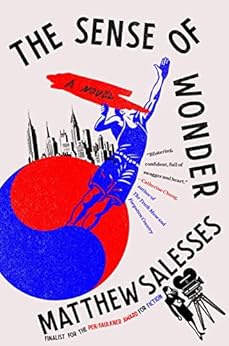
This novel has two main stories, each told by a first-person narrator. The first is Won Lee, a Korean basketball player for the NY Knicks, the only Asian in the NBA. The other narrator is Carrie Kang, a K-drama producer, and Won’s girlfriend. Won and Carrie feel underappreciated and are victims of bias in their respective worlds. Additionally, there is much competition and drama between the two main characters and among the supporting characters, which include the star player on the Knicks, Paul Burton, known as Powerball!, and Robert Sung, a Korean-American ESPN journalist.
None of the primary characters felt a sense of belonging in the roles they chose as careers. All suffered insecurities that manifested in different ways; each wanted to fit in or play life differently. Since insight into the players’ thoughts and motivations is prevalent in the book, it has been described as “meta.” I think this novel is also supposed to be a fictional “real-life” Korean television drama, K-drama. The tropes common to K-dramas are friendship, family values, and love, blending traditional Confucian with Western materialism and individualism. The Sense of Wonder includes text describing K-drama as portraying the tension between certainty and wonder. The K-drama story within the story and the main plot forces us to consider what is real and imagined by describing uncertainty and using the title significance of the word wonder in various contexts.
Salesses has said that K-dramas are more true-to-life than American TV. He wrote this novel based on parts of his life story, and he emphasizes the themes that are important for him to convey:
-adoption
-seemingly invisibility of Asian Americans
-racism demonstrated against Asians in the USA
-fate
-frame of reference
-characters being outsiders in everyday situations
-power structures in the USA and abroad
-societal expectations, tokenizing


